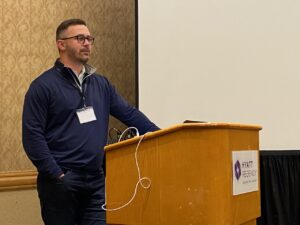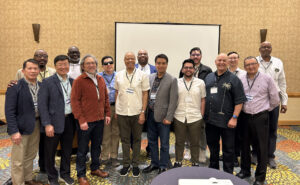
AUSTIN, Texas (BP)–The Texas Supreme Court has capped eight years of litigation by ruling in favor of three seminaries that the state’s higher education code places unconstitutional restrictions on them.
The Texas Education Code required religious and other private degree-granting institutions to be state certified or accredited before granting post-high school degrees. The law, amended in 1998, also required state certification before a religious school could call itself a seminary.
The state’s Supreme Court’s ruling in favor of Tyndale Theological Seminary in Fort Worth, Southern Bible Institute in Dallas and Hispanic Bible Institute in San Antonio notes that the state’s requirement “impermissibly intrudes upon religious freedom protected by the United States and Texas Constitutions.”
The court’s Aug. 31 ruling overturned two lower court decisions. The court ruled 8-0 that the law wrongly restricted the schools’ use of the term “seminary.” But the court split on the question of whether the state could regulate the granting of seminary diplomas, with two justices arguing the state may exercise such oversight.
In 1999 the state of Texas fined Tyndale $173,000 for violating the Texas Education Code by calling itself a seminary though not certified by the Texas Higher Education Coordinating Board, and for granting post-secondary degrees despite its unaccredited status.
HEB Ministries, which runs Tyndale’s Texas campus, in turn sued the state on religious freedom grounds, joined by the two other schools.
Southwestern Baptist Theological Seminary in Fort Worth, an accredited institution owned by the Southern Baptist Convention, filed an amicus brief in the case on behalf of the three religious schools.
The court noted the intent of the Texas Education Code is to prevent deception of the public by “degree mills,” which it defines as schools granting “fraudulent or substandard” degrees. The Texas Higher Education Coordinating Board argued it was neutral toward all post-secondary schools, religious or not, by applying the same standards to all.
Yet, the court wrote, “The State cannot avoid constitutional impediments to setting substantive standards for religious education by making the standards applicable to all education institutions, secular and religious.”
Further, the court opinion stated the state’s requirement of “academic freedom” and “faculty ‘independence'” conflicts with the doctrinal statement of a school such as Tyndale, which the court noted holds to biblical inerrancy and conservative theology. Such requirements unconstitutionally elevate one type of religious instruction over another, the opinion stated.
The court ruled narrowly on the state law, applying its decision only to the section of the law affecting exclusively religious institutions. The ruling does not apply to private secular schools and religious schools offering secular education programs.
The court wrote: “It is one thing for the State to require that English majors in a baccalaureate program take science or math courses, that they be taught by professors with master’s degrees from accredited institutions, and that professors have the freedom to teach that the works sometimes attributed to Shakespeare were really written by Edward de Vere, Christopher Marlowe, Francis Bacon, or Queen Elizabeth I. It is quite another for the State to require that a religious institution’s baccalaureate-level education in religion include psychology courses, or that preaching or evangelism or missions be taught only by professors with master’s degrees instead of practitioners from the field, or that a school’s faculty have the freedom to teach that the Bible was not divinely inspired, contrary to the school’s tenets of faith.”
Kelly Shackelford of Plano, Texas, one of the attorneys who argued the case, said in a statement: “This decision is a huge victory for all seminaries not only in Texas but nationwide. The state has no authority or competence to control the training of pastors and ministers, and the Supreme Court rightly held so.”
–30–
Jerry B. Pierce is managing editor of the Southern Baptist TEXAN, on the Web at www.texanonline.net.
















